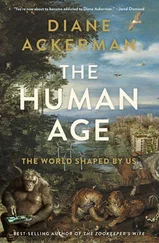“Newport,” her mother answered. That’s where they’d been happiest.
And so they went. Her mother explained to her that they were lucky. Her father had gotten himself into trouble and they might have found themselves in prison, or worse. Except the government needed someone to blame for what had happened in Shanghai. They would blame her father. They would tout his disloyalty. They would accuse him of having conspired with the Americans. The proof of this would be his family’s abrupt departure to the United States. Her mother told her these things so that she would know that they weren’t true. “This new life,” her mother had said, “is what your father left us. We have become his second chance.”
Her mother, the wife of an admiral and a diplomat, now worked fourteen-hour days cleaning rooms at two separate chain hotels. The girl had offered to help, to also get a job, but her mother placed limits on her own humiliation, and seeing her daughter’s education sacrificed to menial labor would have breached those limits. Instead, the girl attended school full-time. In solidarity with her mother, she helped keep the studio apartment they shared impeccably clean.
Her mother never settled for menial labor. When she wasn’t working, she was searching for a better job. On several occasions, she reached out to the local Chinese community, those immigrants who’d arrived on American shores within the last one or two generations, her presumed allies who now owned small businesses: restaurants, dry cleaners, even car dealerships sprouting up around Route 138. Although America was a place where people came to make a new life, for both mother and daughter their old lives followed them. The Chinese community had to contend with the suspicions of other Americans, many of whom assumed their complicity in the recent devastation. Unfair as that assumption was, such assumptions in times of war were an American tradition—from Germans, to Japanese, to Muslims, and now Chinese. Helping the wife and daughter of a deceased Chinese admiral would only heighten suspicions against anyone foolish enough to assume the undertaking. The community of Chinese immigrants rejected the girl and her mother.
So her mother continued with her menial labor. One day a week she had off from work, but it didn’t always fall on a weekend, so it was the rare occasion when mother and daughter could spend a free day together. When they had their day, they always chose to do the same thing. They would take the bus to Goat Island, rent a dinghy from the marina, let out full sail, and head north, tucking beneath the Claiborne Pell suspension bridge up toward the Naval War College, the same route they’d taken years before, with Lin Bao.
They never spoke his name around the house, fearful of who might still be listening. Out here, however, on the open water, who could hear them? They were beyond reach and free to say what they pleased. Which was why it was on the water, shortly after they passed beneath the bridge and two years after they’d first arrived, that her mother admitted she’d finally stopped looking for a different job. “Nothing better is coming,” she conceded to her daughter. “We must accept this…. Your father would expect us to be strong enough to accept it.”
“No one here trusts us, not even our own people. We’ll never be Americans,” the girl said bitterly. She sat slumped next to her mother, the two of them side by side in the stern of the dinghy. Her mother held the tiller; she didn’t look at her daughter, but at the horizon, trying to keep them on course.
“You don’t understand,” her mother eventually said. “We are from nowhere and have nothing. We have come here to be from somewhere and to have something. That is what makes us American.”
The two sat silently for a time.
A spray of water came over the bow as they crossed the wake of a much larger ship, the uncaring wave almost swamping their small dinghy.
When they arrived off the coast of the Naval War College, they drew in the sail, lifted the tiller, and dropped their small anchor. Their dinghy bobbed in the gentle swells. The two of them, mother and daughter, didn’t speak. They watched the shore, the familiar pathways, the office where he had once worked, the life they’d once had and, perhaps, would someday have again.

17:25 June 12, 2037 (GMT-6)
New Mexico
The ranch house was built in the center of her one-hundred-acre plot. The renovation had taken three years and most of her savings, but Sarah Hunt was starting to feel as though it was home. The house itself wasn’t much, a single floor with exposed timbers and rafters. She still didn’t have anything to hang on the walls and wondered if she ever would. Most of her photos she kept in storage. On a few occasions since retiring, after one sleepless, sweat-soaked night or another, she would go out to the shed in the back of the house and consider burning the single box that contained the photographs.
But it hadn’t come to that, at least not yet.
After Shanghai, the dreams got worse. Or not necessarily worse, but more frequent. Night after night she would be standing on the dock with the seemingly infinite parade of ships offloading their cargo of ghosts, while she searched for her father. She never found him, not once. Yet she remained unconvinced that her searching in the dreams was futile. For a long time, she hoped that when she finished her new home, the dreams might stop. And if they never stopped, she at least hoped to find something or someone recognizable in them. That hadn’t yet proven the case.
She had gone on and off medication to no effect.
She had spoken to therapists who only seemed to want to bury her beneath the weight of her own words, so she’d stopped talking to them. Each day, she walked the perimeter of her property, though it made her bad leg ache. Eight miles from her nearest neighbor, her plot of high desert brought her a modicum of peace. Despite the dreams, out here she could at least sleep. After the strike on Shanghai, she’d gone nearly a week with no sleep at all, her nerves so frayed that Hendrickson had to fly out to the Enterprise and relieve her of command himself, in the midst of the ceasefire negotiations being brokered by New Delhi. He had been gentle with her then, and he had remained gentle with her in the three years since. Predictably, he’d stayed in the Navy, pinning on a third star in his ascent to its highest ranks. A reward—and a deserved one—for the role he’d played in brokering the peace.
On his visits, which had become less frequent, he always assured her that there was nothing she could’ve done to prevent Shanghai. She hadn’t been the one to issue the launch order. Once the nine Hornets had departed the Enterprise there was nothing she could have done. If anything, the one Hornet getting to its target might have proven crucial to ending the war. During the ceasefire negotiations that followed, it had been essential for hawks like Wisecarver to make the face-saving claim that they had avenged the attacks against Galveston and San Diego. Without that claim, Hendrickson felt certain no ceasefire agreement would have been signed.
“This wasn’t your fault,” he would say.
“Then whose fault was it?” she would ask.
“Not yours,” and they would leave it at that. For the first year and into the second, Hendrickson would offer to help her in the ways he thought she needed help. “Why don’t you come stay with us for a bit?” or, “I’m worried about you out here on your own.” He thought it might be good for her to get back on the water again. Healing was the word he’d used. Hunt had reminded him that it was no accident she’d bought property in New Mexico, a landlocked state.
Читать дальше













